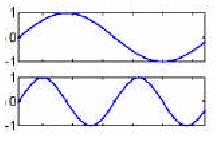inquisitive1
Newbie level 5

i have got few questions to ask about waves
first do waves only interfere if they have 180 degrees phase shift or are inphase? like for example in the image below would these two waves not interfere? if no then why ?

someone on this forum said that orthogonal signals dont interfere as they are 90 degrees out of phase. they have to be 180 degrees out of phase or inphase to interfere
second question is that i was told by someone that interference is a temporary effect. it doesnt last. i.e waves interfere as long as they are superimposed and then they go on traveling to their destination unaffected after the contact between the two waves is over
i wonder when they superimpose each other and gave rise to a new composite wave then why didnt it affect their orginal waveform?
first do waves only interfere if they have 180 degrees phase shift or are inphase? like for example in the image below would these two waves not interfere? if no then why ?

someone on this forum said that orthogonal signals dont interfere as they are 90 degrees out of phase. they have to be 180 degrees out of phase or inphase to interfere
second question is that i was told by someone that interference is a temporary effect. it doesnt last. i.e waves interfere as long as they are superimposed and then they go on traveling to their destination unaffected after the contact between the two waves is over
i wonder when they superimpose each other and gave rise to a new composite wave then why didnt it affect their orginal waveform?

